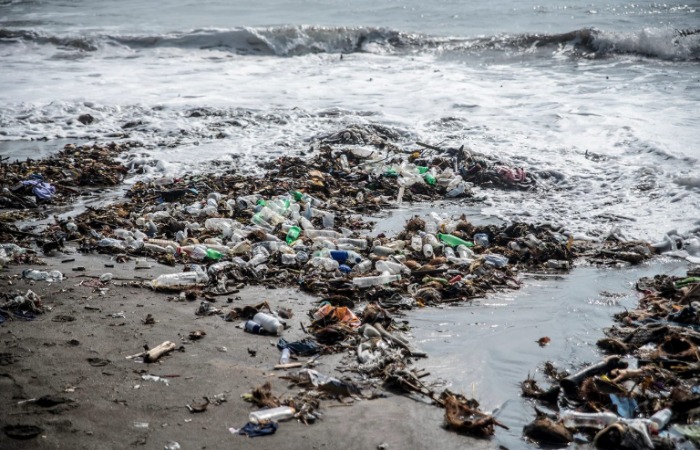✓ Fast delivery and pickup
✓ Serving the Concord, NC area
✓ Customer friendly staff
✓ Call (704) 368-0753 now!
✓ Local family business
✓ Satisfaction guaranteed
Pollution is a pressing environmental concern that affects numerous regions worldwide, including the city of Concord. While air pollution often takes center stage in discussions about environmental degradation, it is crucial to acknowledge the detrimental impacts of soil and water pollution as well.

Soil Pollution in Concord
Soil pollution refers to the degradation of soil quality due to the introduction of harmful substances. In Concord, various factors contribute to soil pollution. Industrial activities, improper waste disposal, and the excessive use of agrochemicals are among the primary culprits. Industrial operations release heavy metals, chemicals, and toxic waste that seep into the soil, rendering it contaminated and unsuitable for farming or other land uses.
Improper waste disposal practices exacerbate soil pollution in Concord. Disposing of hazardous materials and chemicals in landfills or dumping them illegally leads to the release of harmful substances into the soil. The accumulation of non-biodegradable materials, such as plastics, further exacerbates the problem.
Agricultural practices, including the overuse of pesticides, herbicides, and fertilizers, also contribute to soil pollution. The excessive application of these chemicals results in their seepage into the soil, leading to contamination. Runoff from agricultural lands can carry these pollutants to nearby water bodies, exacerbating water pollution as well.
The consequences of soil pollution in Concord are far-reaching. Contaminated soil affects agricultural productivity, impacting food security and public health. When crops absorb pollutants from the soil, they may become contaminated, posing risks to human consumption. Additionally, soil pollution leads to the degradation of ecosystems, as it negatively impacts soil fertility and biodiversity. Restoring contaminated soil is a complex and expensive process, making prevention crucial in addressing soil pollution in Concord.
Water Pollution in Concord
Water pollution is a significant environmental issue in Concord, with detrimental effects on aquatic ecosystems and human health. Several sources contribute to water pollution in the city. Industrial discharge is a prominent cause, as untreated wastewater containing heavy metals, chemicals, and toxins enters rivers and streams, contaminating water bodies. Stormwater runoff from urban areas, carrying pollutants from streets and surfaces, also contributes to water pollution.
Agricultural runoff plays a significant role in water pollution, with excessive use of agrochemicals and poor soil management practices resulting in the contamination of rivers and lakes. Fertilizers and pesticides leach into water bodies, causing nutrient imbalances, harmful algal blooms, and fish kills. Livestock waste, if not properly managed, can also contaminate nearby water sources through runoff.
Inadequate sewage systems and outdated wastewater treatment plants contribute to water pollution in Concord. If wastewater is not treated effectively, it can contain pathogens, pharmaceuticals, and other pollutants that find their way into water bodies, posing health risks to humans and aquatic life.
The consequences of water pollution are severe. Contaminated water affects aquatic ecosystems, leading to the decline of fish populations, disruption of food chains, and loss of biodiversity. Moreover, polluted water poses health risks to humans, as it may contain pathogens and toxins that cause waterborne diseases. Drinking water contaminated with heavy metals and chemicals can lead to long-term health problems, including organ damage and developmental issues.
Addressing Pollution in Concord
To combat pollution in Concord, proactive measures are necessary. Implementing stricter regulations and monitoring systems for industrial activities is crucial to prevent the release of harmful substances into the environment. Promoting sustainable waste management practices, such as recycling and safe disposal, can help reduce soil and water pollution in Concord. Encouraging industries to adopt cleaner production methods and invest in advanced wastewater treatment technologies can significantly reduce their environmental footprint.
In the agricultural sector, promoting sustainable farming practices is essential to mitigate soil and water pollution. Educating farmers about the appropriate use of fertilizers and pesticides, as well as implementing precision farming techniques, can minimize chemical runoff and protect water sources. Additionally, implementing measures such as buffer zones and vegetative barriers can help filter agricultural runoff before it reaches water bodies.
Improving sewage systems and upgrading wastewater treatment plants is crucial for preventing water pollution in Concord. Ensuring that all wastewater undergoes effective treatment before being discharged into water bodies can significantly reduce the contamination of aquatic ecosystems. Implementing stricter regulations and conducting regular inspections can hold industries and municipalities accountable for their wastewater management practices.
Community engagement and public awareness play a vital role in addressing pollution issues. Educating the public about the impacts of pollution on human health, ecosystems, and the economy can foster a sense of responsibility and encourage individuals to adopt environmentally friendly practices. Engaging local communities in clean-up initiatives, such as river clean-ups or tree planting campaigns, can help restore and protect natural habitats.
Furthermore, implementing monitoring programs to regularly assess soil and water quality is crucial. This can involve conducting regular testing for contaminants and establishing thresholds for acceptable levels. Early detection of pollution can prompt swift action to prevent further contamination and implement appropriate remediation measures.
Collaboration among different stakeholders is essential for effective pollution management in Concord. Government agencies, industries, environmental organizations, and the public must work together to develop and enforce environmental policies, share knowledge and resources, and implement sustainable practices.
Pollution in Concord, particularly in soil and water, poses significant threats to ecosystems, public health, and the overall well-being of the community. Soil pollution from industrial activities, improper waste disposal, and agricultural practices impacts agricultural productivity and biodiversity. Water pollution, arising from industrial and agricultural runoff, as well as inadequate sewage systems, affects aquatic ecosystems and poses health risks. Addressing pollution requires a multi-faceted approach involving stricter regulations, sustainable practices, community engagement, and collaboration. By taking proactive measures, Concord can work towards a cleaner and healthier environment for current and future generations.
✓ Fast delivery and pickup
✓ Serving the Concord, NC area
✓ Customer friendly staff
✓ Call (704) 368-0753 now!
✓ Local family business
✓ Satisfaction guaranteed
